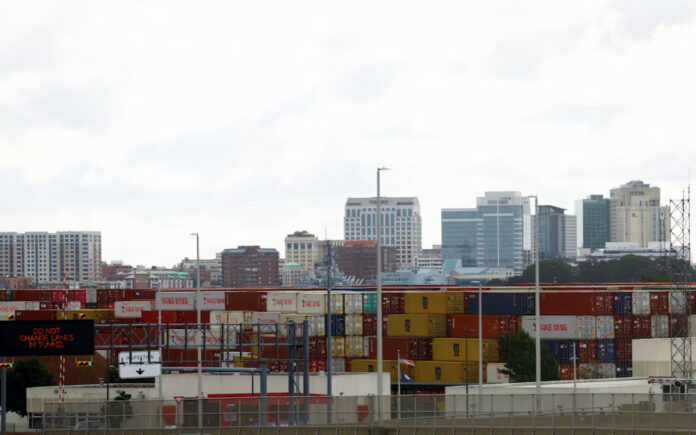New York: The dockworker strike at U.S. ports, now in its third day, has caused a growing queue of container ships, with 45 vessels anchored off the East Coast and Gulf Coast as of Wednesday, up from just three before the strike began. The strike, the largest in nearly 50 years, has disrupted the unloading of goods, raising concerns about potential shortages of products ranging from bananas to auto parts.
No negotiations are currently scheduled between the International Longshoremen’s Association (ILA) and employers, though port owners, facing pressure from the White House, indicated late Wednesday they are open to renewed talks. The ILA, which represents 45,000 port workers from Maine to Texas, initiated the strike on Tuesday after contract negotiations with the United States Maritime Alliance (USMX) collapsed.
“Many seem to have decided to wait it out, possibly in hopes of a prompt resolution to the strike action, rather than taking the proactive decision to divert,” said Everstream’s Jena Santoro in a video presentation shared by Reuters. She added that the ship backlog could double by week’s end, with congestion potentially taking weeks or months to clear.
While some ships could be rerouted to West Coast ports via the Panama Canal, this would increase shipping costs and add weeks to delivery times. The ILA is seeking a substantial pay raise and commitments to halt automation projects at the ports, which the union believes could eliminate jobs. Although the USMX has offered a 50% pay increase, the ILA has called it insufficient.
“Reaching an agreement will require negotiating,” the USMX said on Wednesday, expressing a willingness to continue bargaining in good faith, but refusing to meet preconditions for negotiations.
Also Read | USCIRF Calls for India to Be Designated as ‘Country of Particular Concern’ Over Religious Freedom
The Biden administration has backed the union, pressuring port employers to raise their pay offer to secure a deal, while citing the shipping industry’s significant profits since the COVID-19 pandemic. Despite the administration’s stance, economists suggest that the port closures may not immediately raise consumer prices due to companies having sped up shipments of key goods ahead of time. However, a prolonged strike could eventually lead to rising food prices, according to Morgan Stanley economists.
Also Read | Massive $6.6 Billion Funding Round Positions OpenAI Among World’s Most Valuable Companies
The strike has impacted 36 ports, including major hubs in New York, Baltimore, and Houston. On Wednesday, the National Retail Federation, along with 272 other trade groups, urged the Biden administration to intervene and halt the strike, warning that it could have “devastating consequences” for the economy. However, the administration has stated that it will not use federal authority to stop the strike.



